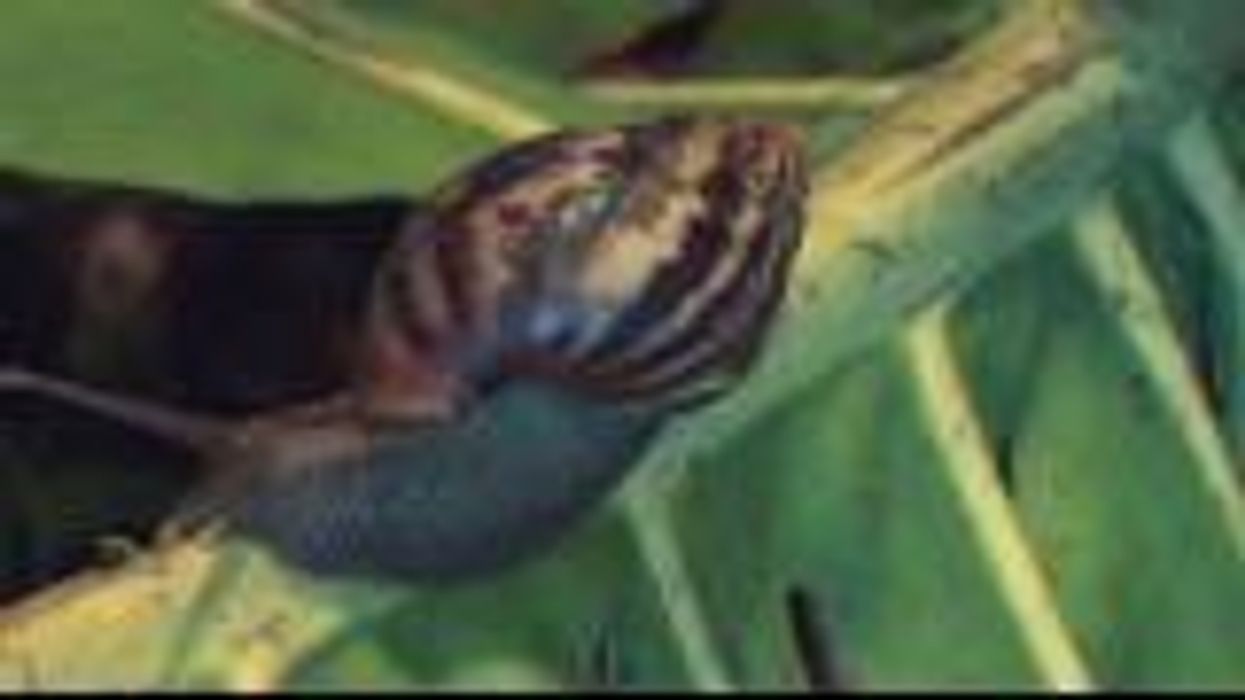Ariana Baio
Jul 05, 2022
Giant African land snail found in Pasco County
Video
In Pasco County Florida, a quarantine order was issued for people after the re-discovery of the giant African land snail, an invasive species that can harm to humans, structures, and wildlife.
On June 24th the Florida Department of Agriculture and Consumer Services (FDACS) created a quarantine surrounding the town of New Port Richey.
The giant African land snail (GALS) can grow to be the sized of a human fist and was thought to be eradicated in South Florida last year, but alas it is back.
Unlike Covid quarantine, this one just means residents cannot move plants, plants parts, plants in soil, soil, yard waste, debris, compost, building material, or the giant African land snail itself without proper compliance agreement.
While in quarantine, the FDACS will spray metaldehyde, a mucus-reducing pesticide, to treat the affected area.
Sign up for our free Indy100 weekly newsletter
The urgency to treat the area where the giant snail was spotted may seem superfluous to a person not familiar with the snail species but they major risk.
Not only can the GALS carry a parasite that may infect humans with meningitis but it can eat 500 different types of plants and the stucco on homes.
The snail is difficult to eradicate because they reproduce quickly. GALS can lay up to 1,200 eggs in a single year.
First spotted in the 1960s, a $1 million effort was implemented over the course of 10 years in South Florida to help keep the GALS population low. The eradication effort was restarted in 2011 and declared successful in 2021. But now, the effort begins again.
The metaldehyde treatment disrupts the snail's mucus production making it difficult for the snail to digest and move around. This makes them particular susceptible to dehydration leading to death, according to the Department of Agriculture.
The new eradication plan comes just days after biologists caught the heaviest Burmese python in Florida history. The python is also an invasive species that Florida has taken steps to eradicate.
Have your say in our news democracy. Click the upvote icon at the top of the page to help raise this article through the indy100 rankings.
Top 100
The Conversation (0)














